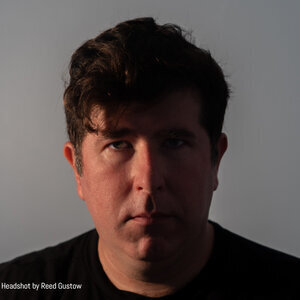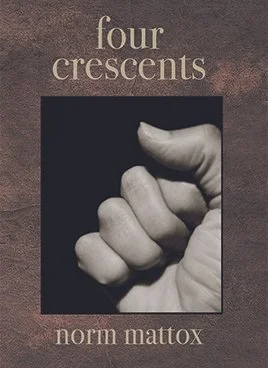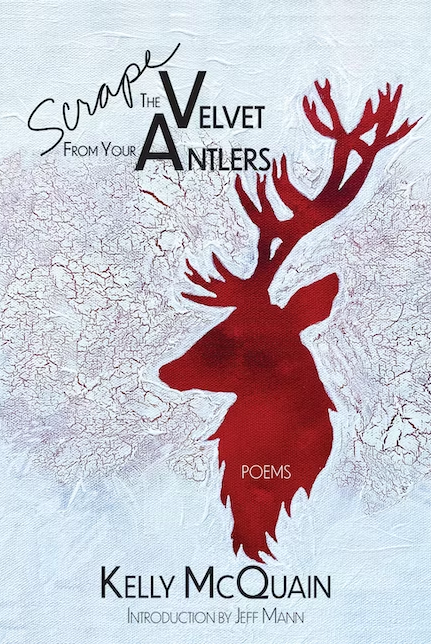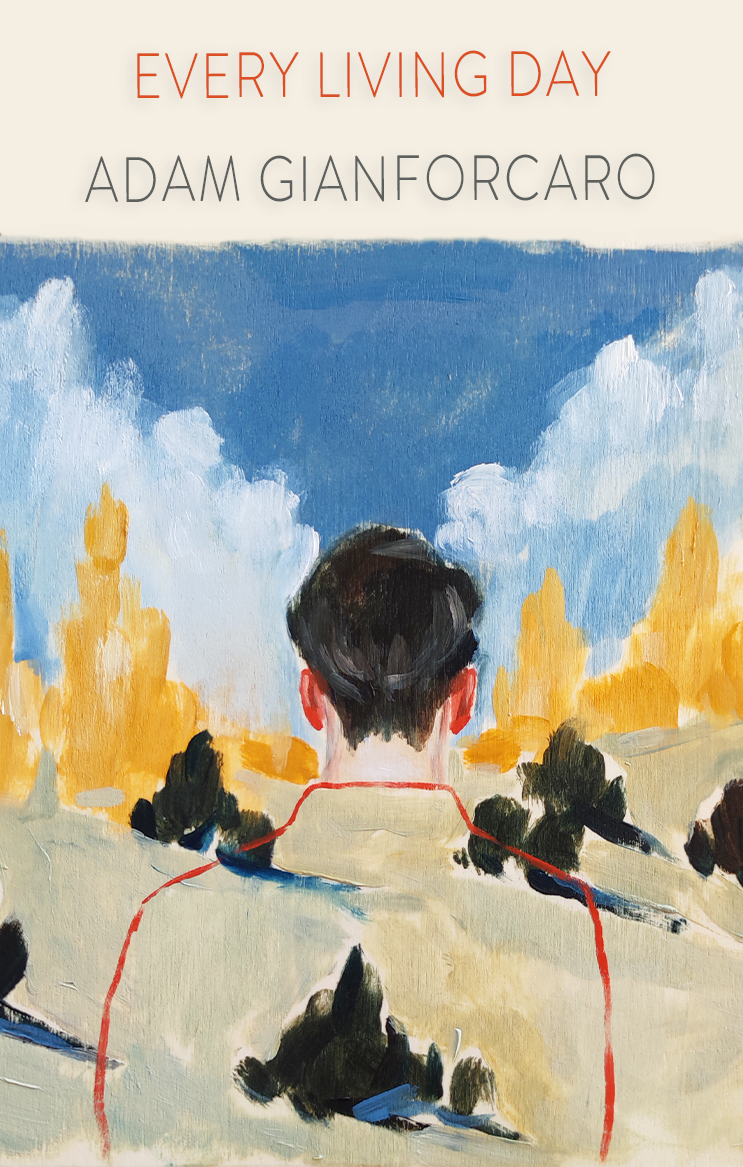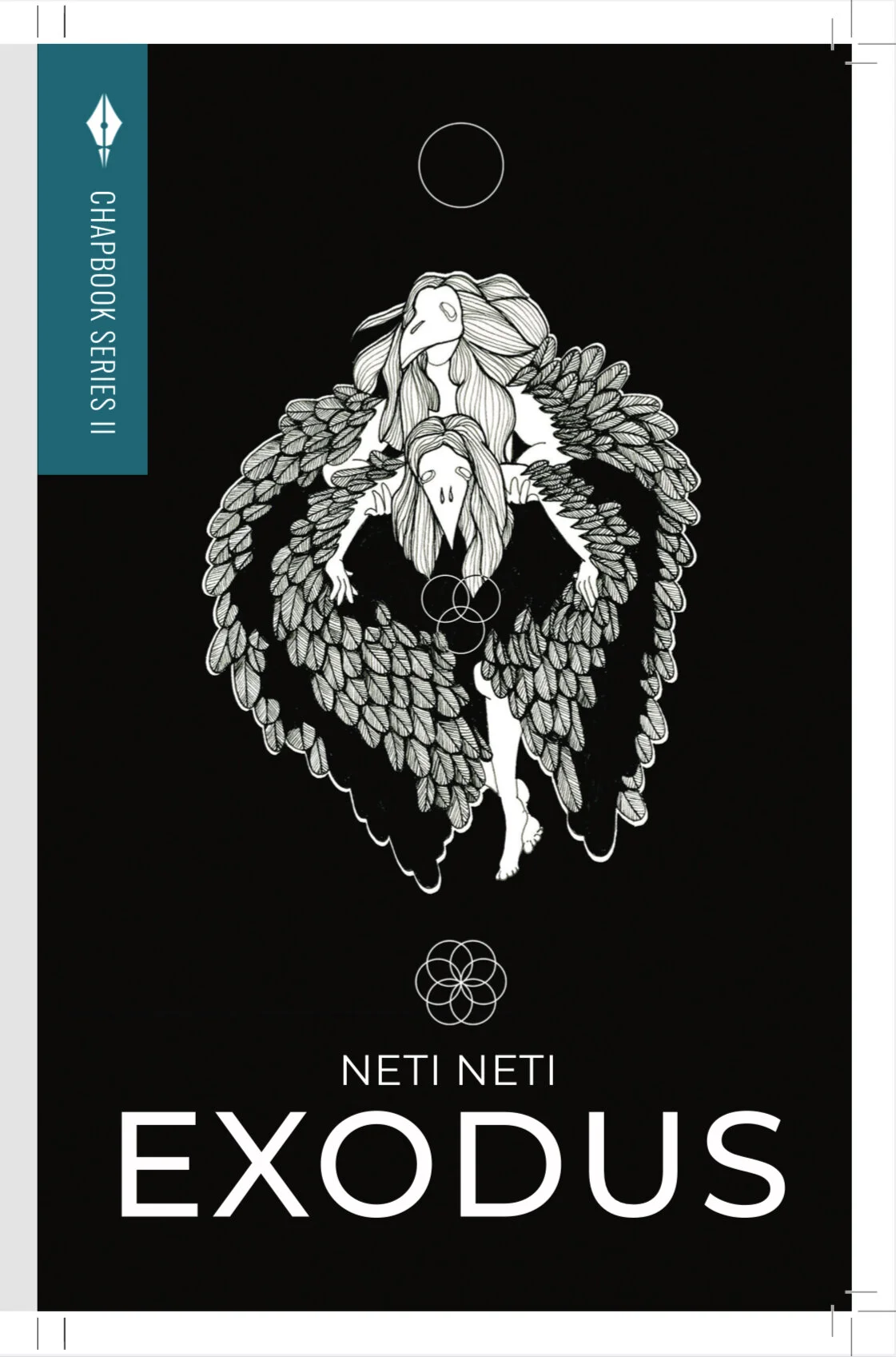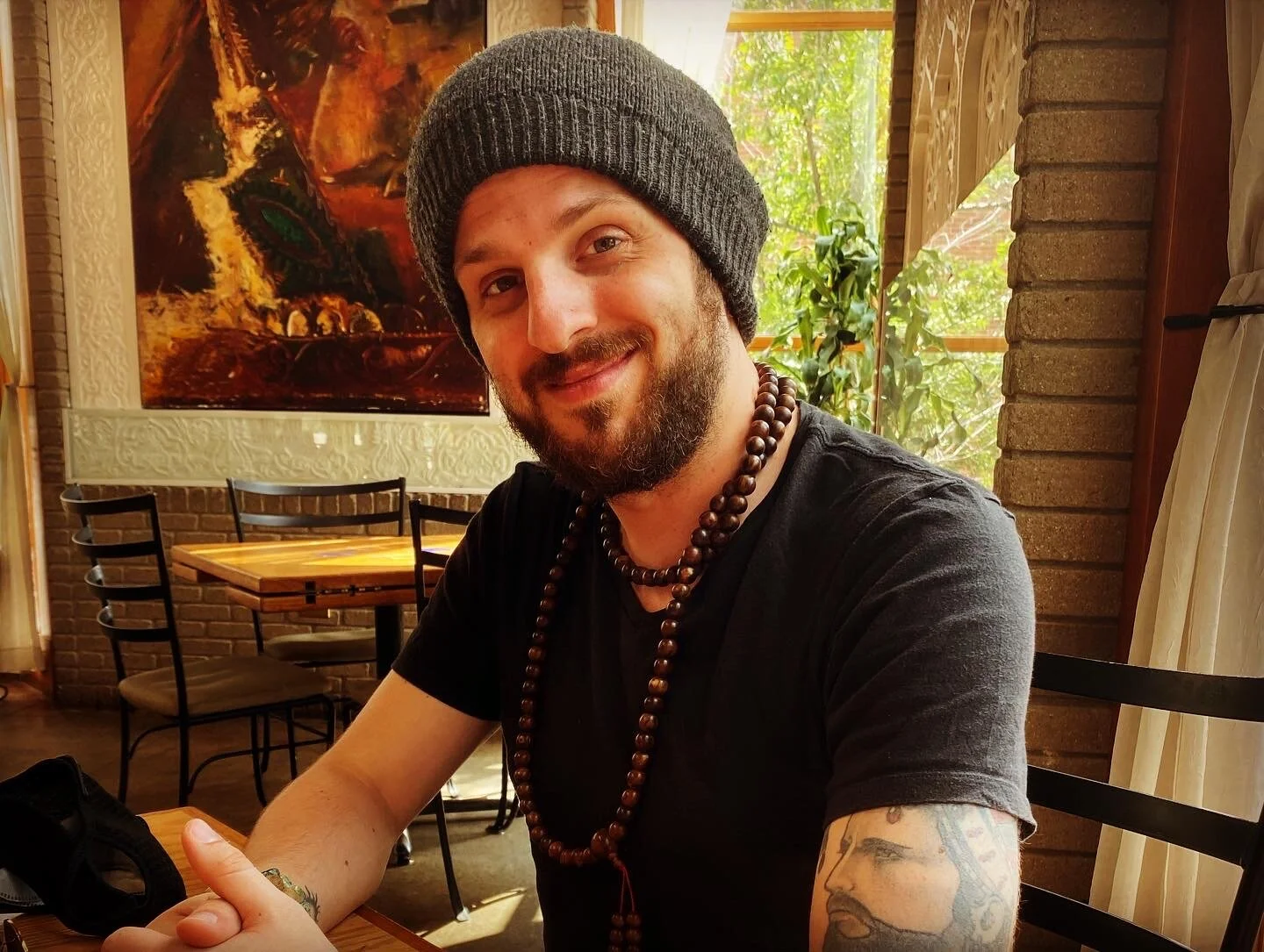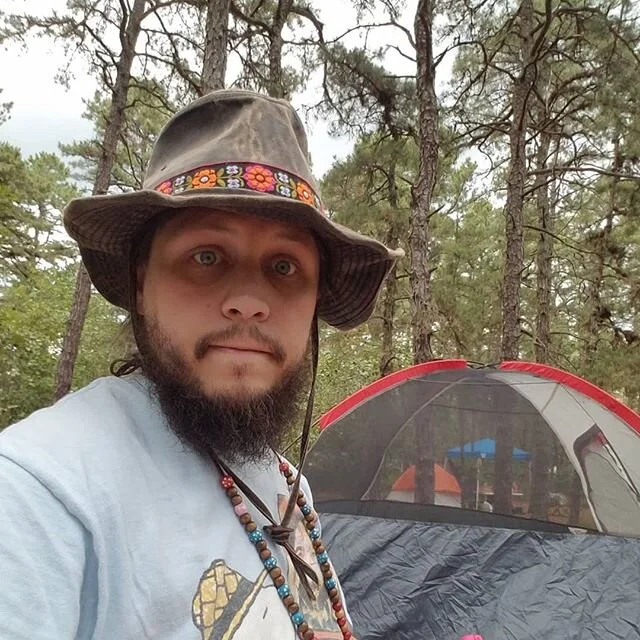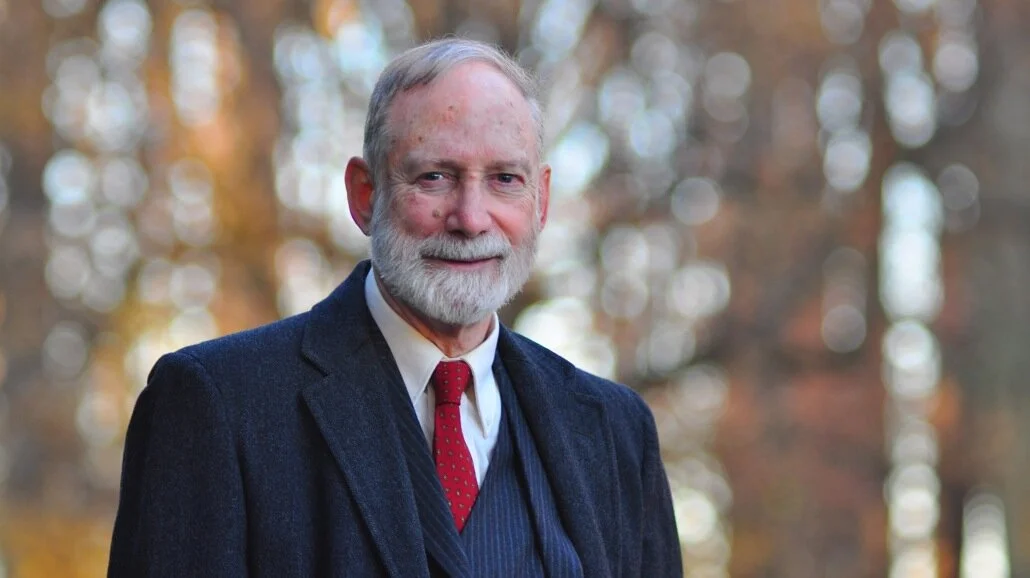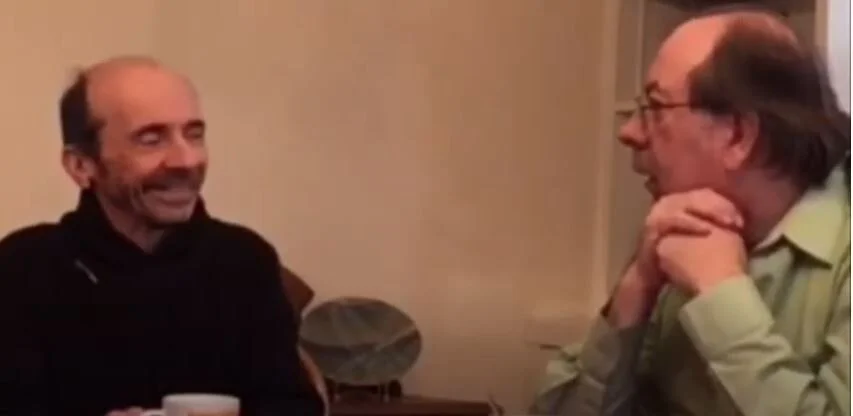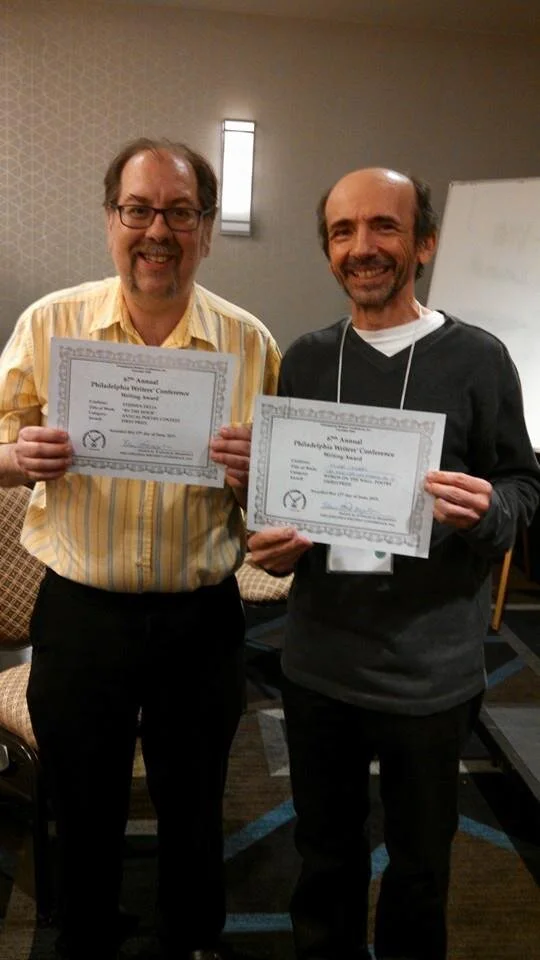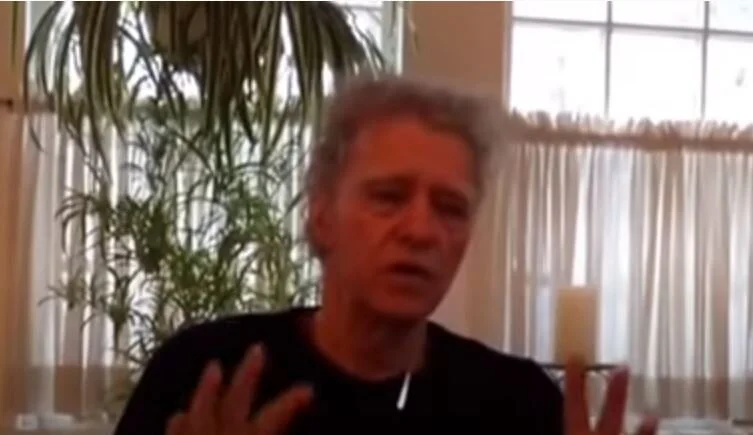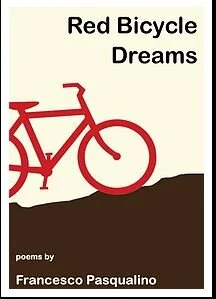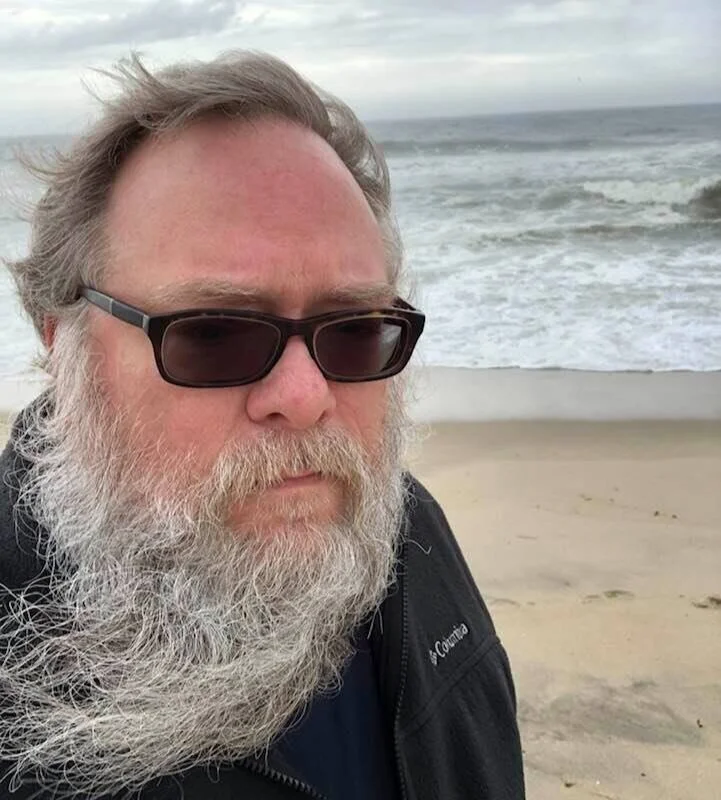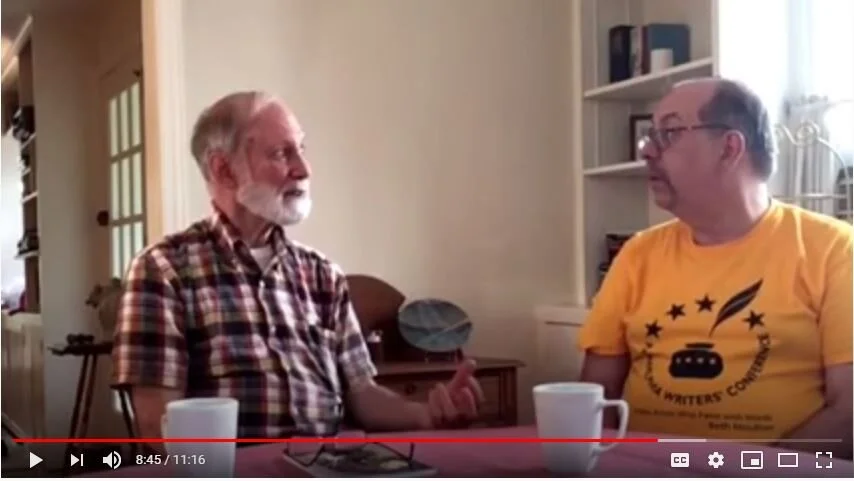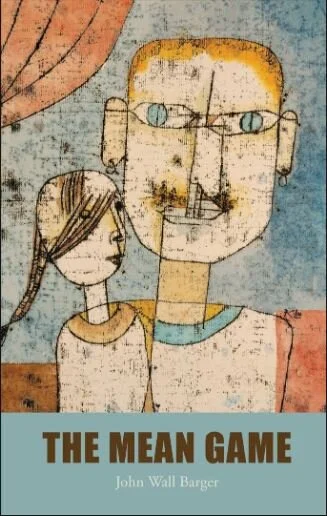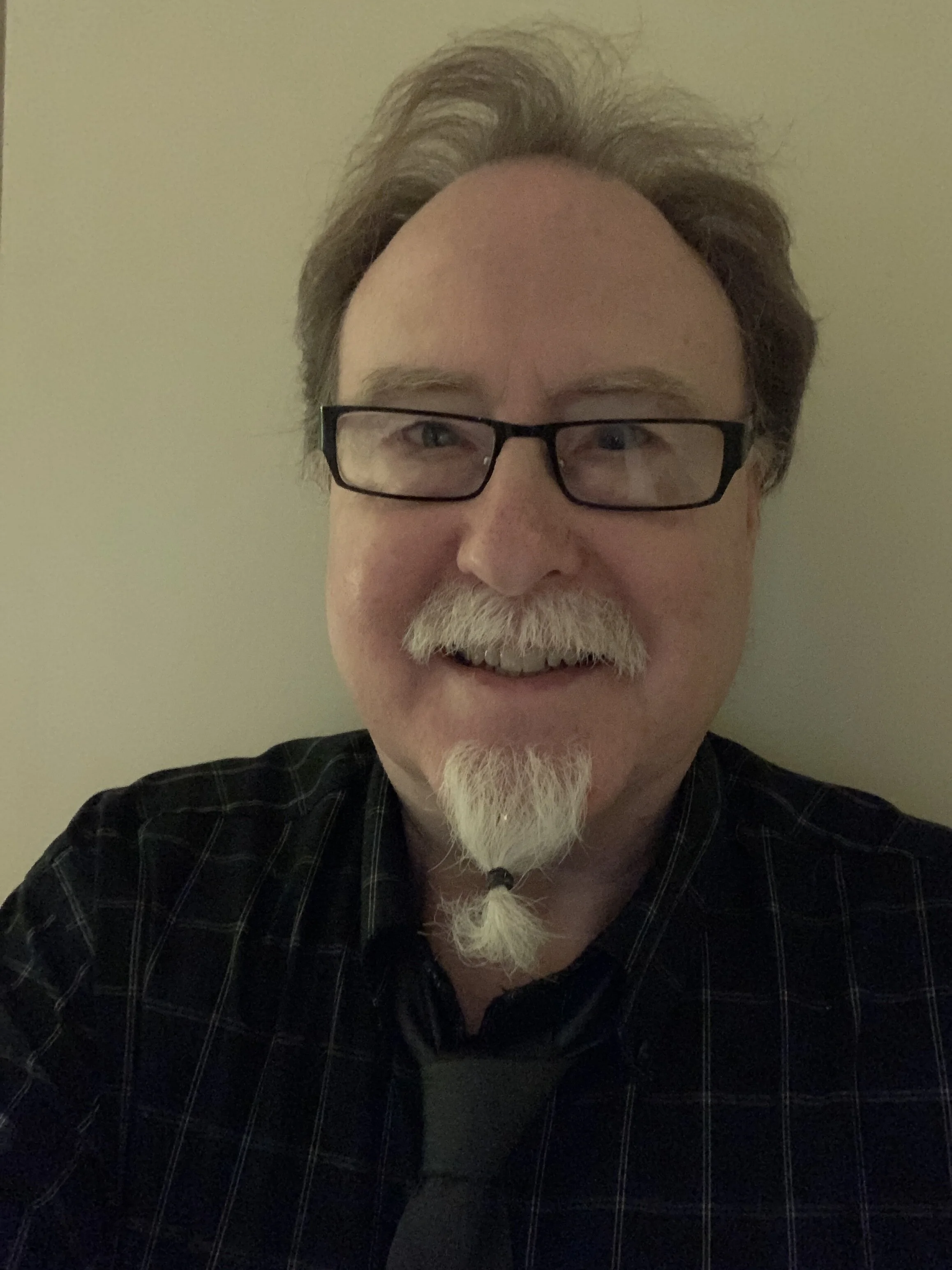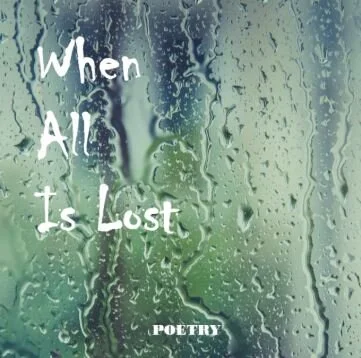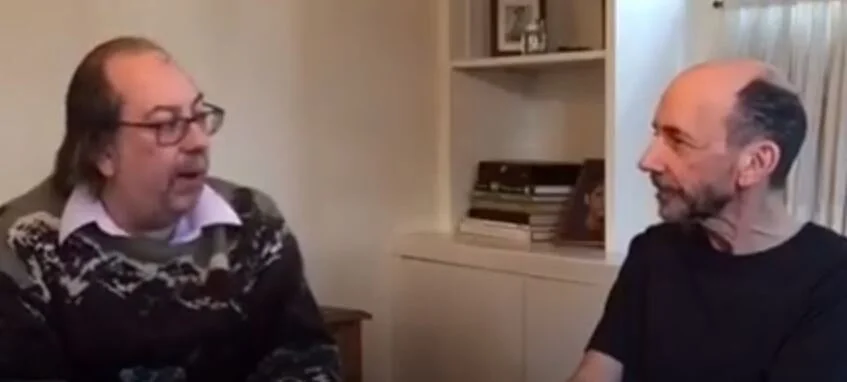Jonathan Koven’s Mystic Orchards is dreamy bildungsroman overflowing with luscious language celebrating family, memory, and love. This work is divided into five sections: 1. Spirit of Growth, 2. A Dark Horizon, 3. Sylvan Memory, 4. Deepest Blue, and 5. Awoken in a Field of Light. Through this review, I will explore a poem from each section, which is a challenge of sorts since all the poems in this collection are so gorgeously and meaningfully interwoven, it is hard to pick apart its illuminating, gossamer strands. But, dear reader, I will try.
Koven’s adept use of language is evident from the first titled poem, “Stilled Wings,” in Spirit of Growth. It brings to mind a child’s first brush with disappointment, even morality with the evocative lines: “Past the farthest knoll I drag/ sacks of dead fireflies/ No longer do their strobes glow.” His language is so visceral, so visual that the reader can imaginatively walk the scenescape. After tossing the dead fireflies into a wishing well, he ends the poem with the haunting stanza: “In the cold black water/ moonlight envisions gardens/ their stilled wings will soar.”
“Oftentimes the Still Sad Music” is my favorite poem from the A Dark Horizon section. In this poem there is faint, yet palpable, backdrop of political unease:
The bell tolls. Mad clown’s diatribe warps high
over the trackless nation, across the soot
sully, through gunpowder plume, home;
wrapped in a hideous blanket of ineloquence.
What intrigues me here is the sonic energy carried in this stanza: the plosive “p”s mixing with the sibilant “s” and the overall consonance throughout. This stanza is alive and creates an uneasy and powerful effect. The political context and intriguing soundscape continue in the following stanza:
Defer to the turnstile regarding ennui
to sadness more sublime; candles for teeth,
suburban cinemas over indigenous graves,
lovers’ hands and not antennae mad for power,
thieving tomorrows, one after the next.
Sylvan Memory contains the surreal, sexy poem “I Read a Name in the Sun.” The aforementioned soundscape mixes with some deliciously idiosyncratic images from Koven:
through timeless gullies
those august glints ever dashing
high with gnats loud on peaches
sexing under crackling suppressed sky
relapses to summer psychedelia
to spite the very choice
in daily resurrection
This poem blurs by like a quick yet endless summer afternoon. When I read this poem, I imagine myself under dappling leaves dreaming about then eventually discovering love. Koven’s Edenic garden brings all sort of fond memories to mind. This section spoke to me the most—a tour de force.
Full disclosure: I am a sucker for prose poems, so for the Deepest Blue section I would like to spotlight “Writing on the Wall.” This poem uses the paragraph to maintain its impressive momentum with lines such as “You believed, heaven is a fast/ car flooded in music, an exposed spine, dry heaving, a goodbye/ said tomorrow afternoon,” or “Love slipped over suburbia—arguments/ of bored siblings, first wanderlust, pale rooves juggling stars, bulbs/ chirring like rain,” and last example (it’s hard to pick only three) “Gazed at the ceiling washing ashore your canvas, listening/ carefully to tremors in arrested white, a heart’s thrum became/ voice’s muted falsetto.” This prose poem contains an epic writ on the speaker’s childhood bedroom wall—great stuff that formed this formidable poet.
Another full disclosure: I am a sucker for film, Hollywood, all that jazz. In “Man Is the Intelligence of His Soil” in the final Awoken in a Field of Light section, Koven makes a wry reference to it:
Eye threads coiling,
loosened yarn balls,
firedrake fingers, breathing
sweetness, laughing at dirt,
my slow tongue circles, to dowse
in summer wash.
Cinematic.
Hollywood’s gray, after all.
For the Wallace Stevens fans among you, Koven acknowledges that this poem is titled after his poem “The Comedian as the Letter C.”
Sometimes, reviews just write themselves, and that certainly was the case with this review. I just took a backseat to Koven’s supple writing and enjoyed letting him drive me to his Mystic Orchards. This is the most cohesive and lush collection of poetry I have read in a long time. I would happily climb the tallest tree and proclaim to the world: “Get a copy of Mystic Orchards!” Have I sold you yet? I’ll answer my own question: Happy Reading!
Sean Hanrahan is a Philadelphian poet originally hailing from Dale City, Virginia. He is the author of the full-length collection Safer Behind Popcorn (2019 Cajun Mutt Press) and the chapbooks Hardened Eyes on the Scan (2018 Moonstone Press) and Gay Cake (2020 Toho). His work has also been included in several anthologies, including Moonstone Featured Poets, Queer Around the World, and Stonewall’s Legacy, and several journals, including Impossible Archetype, Mobius, Peculiar, Poetica Review, and Voicemail Poems. He has taught classes titled A Chapbook in 49 Days and Ekphrastic Poetry and hosted poetry events throughout Philadelphia.


